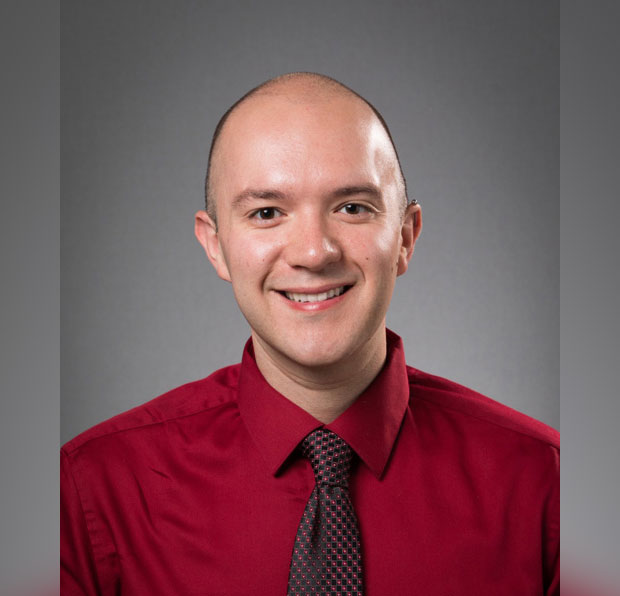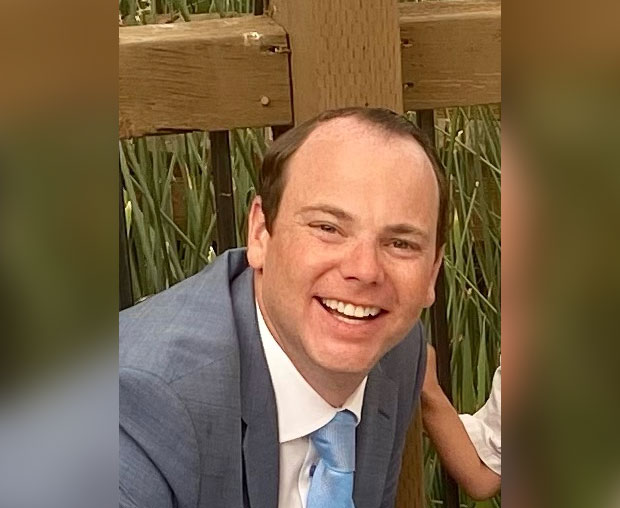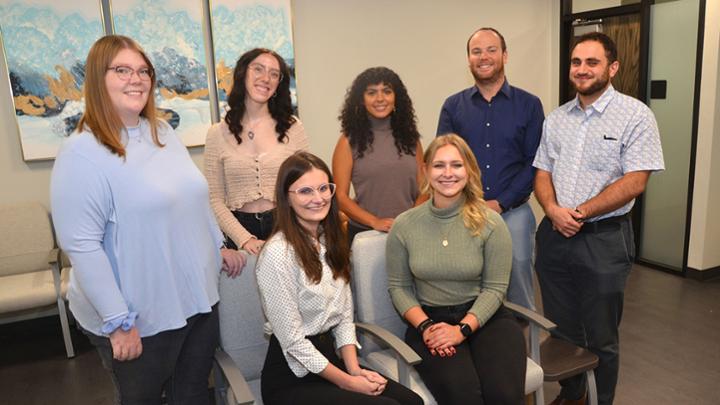Texas Tech researchers work on the development and implementation of suicide intervention project to reach at-risk and stressed population.
Caring for a loved one with a long-term debilitating condition can compound stress, complicating an already demand-filled life and pushing people to feel hemmed in by isolation and that they have nowhere to turn.
What can result are overwhelming feelings of hopelessness, which all too often can prompt caregivers to contemplate suicide.
Texas Tech University researchers are developing an intervention-based approach that aims to neutralize those negative emotions in a group setting with carefully curated content and strategies.
“The specific focus is non-professional caregivers with family members and friends dealing with Alzheimer’s and Alzheimer’s-related dementias,” said Sean Mitchell, an assistant professor in the Department of Psychological Sciences whose research focuses on suicide prevention. “We know they are under immense stress caring for a loved one.

“Family caregivers tend to be older, typically 50 to over 60 years old, and we know they die by suicide at higher rates than other populations, but at the same time, they don’t tell others they are thinking about suicide and don’t usually engage with health care and mental health providers.”
Trying to successfully infiltrate and negate those emotions is the work of a three-year $450,000 grant from the National Institutes of Health. The goal is getting these family caregivers to engage with the material and offer feedback on its effectiveness as Texas Tech looks to expand the horizon of available options for people who might be contemplating suicide.
“There is a huge need in this area,” said Jonathan Singer, also an assistant professor in psychological sciences whose research focuses include family caregiving. “When I first came to Lubbock, I saw a high need for mental services in general for this population.

“Stress is one of a number of things going on in their life, but there are also life changes going on we don’t always think about. On top of that, they are providing unpaid care 24-7 for a loved one without respite. We’re looking at a lot of different factors, but the bottom line is it’s a high-risk population for suicide ideation.”
Complicating the process is a dearth of significant data about this unique group the therapy would target. People caring for someone on hospice or dealing with cancer are in a different place emotionally from caregivers looking after a loved one with Alzheimer’s.
“The type of decline and support needed is quite different. Relationship dynamics change over time, so there is a lot to unpack here,” Mitchell said. “This is a phase of life a lot of people do not talk about, and that is a missed opportunity to not only normalize these experiences, but also to provide support.”
The first phase of the work involves adapting an evidence-based therapy approach called dialectical behavior therapy (DBT), taking a large amount of existing material and reducing it to be more caregiver centered, which includes shortening the intervention.
“We have seen a lot of interventions work for adults and young adults and then implemented with older adults,” Singer said. “With DBT, there are a lot of examples where the pieces might not be relevant or salient because family caregivers might be going through different life experiences. That makes it really important how we adapt it.”
The therapy typically emphasizes four primary areas: distress tolerance, regulation of emotions, interpersonal effectiveness and mindfulness.
“Those are the four modules we’re focusing on,” Mitchell said. “And within those, there are hundreds of pages of worksheets, handouts and suggestions, so we’re building an initial framework as to the core elements to DBT and what could be more flexible without changing the treatment. We want flexibility with fidelity.”
That means much of the first year will be devoted to crafting the best and most engaging material possible while building groups of family caregivers and encouraging them to assess the process.
“We want to give ourselves a lot of time to try and engage this population and not feel rushed or feel like we are rushing them,” Mitchell said. “Situations also change over time in relation to caregiving. If we give six months to rolling out the intervention, we might miss a year’s worth of people who weren’t quite ready, but their stressors have picked up and they could become involved in the study.”
The goal is to have at least 100 people attend sessions with each group limited to no more than eight individuals over the life of the grant.
“Group interventions tend to be more time-efficient and also less burdensome on mental health and the health care system,” Mitchell said. “Whenever we can get an evidence-based group psychotherapy rolled out, it’s great because you can serve so many more people than one on one in an hour with a therapist.”
The project will include a number of collaborations. Andrew Littlefield and Jason Van Allen, associate professors in Psychological Sciences, are also part of the project.
Breanna Harris, an assistant professor in the Department of Biological Sciences at Texas Tech, is helping coordinate assessments that will take place during the project.
Megan Renna with Southern Mississippi University is the project’s DBT expert and helping with adapting the intervention. Volker Neugebauer, executive director of the Texas Tech University Health Sciences Center’s Garrison Institute on Aging, is providing space and other resources for the group intervention.
Graduate and undergraduate students will also be involved.
“The project will help undergrads acquire additional clinical experience,” Singer said. “Grad students will help run interventions and get a nice skill set working with a unique population. There are a lot of positive downstream effects in this project, not just in terms of helping the community and individuals in the community, but also these undergraduates and graduate students.”
Mitchell agreed, saying bringing experts from different areas to work together gave the proposal additional appeal.
“This study is interdisciplinary and brings other professions together to build ideas and develop novel ways to think about suicide risk and intervention,” he said. “This is not just about science and innovation, but it also has a heavy student and training focus as well.”

